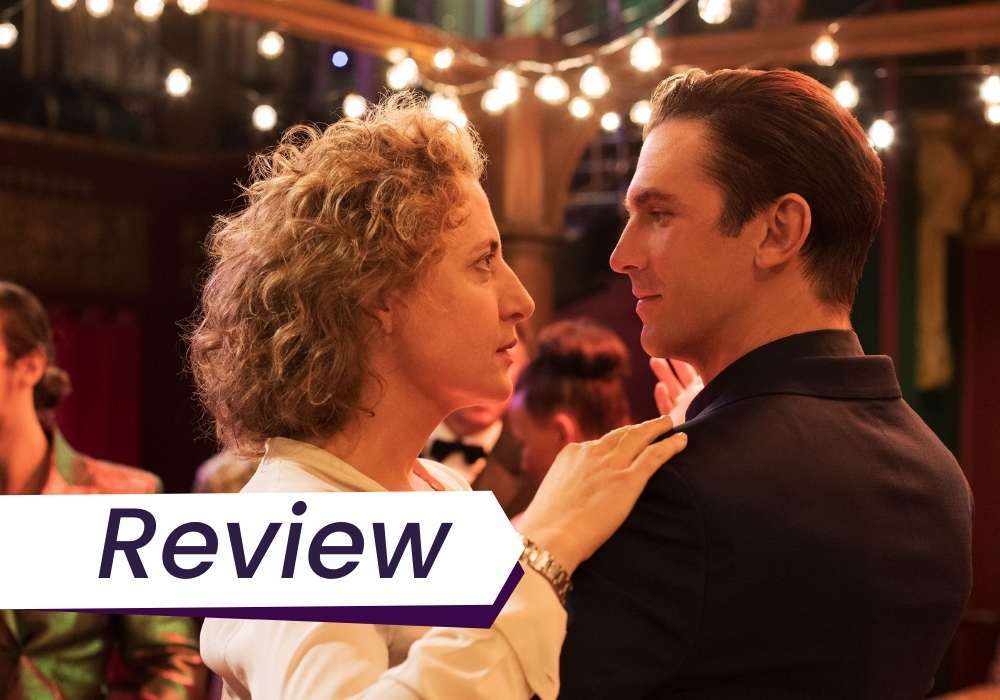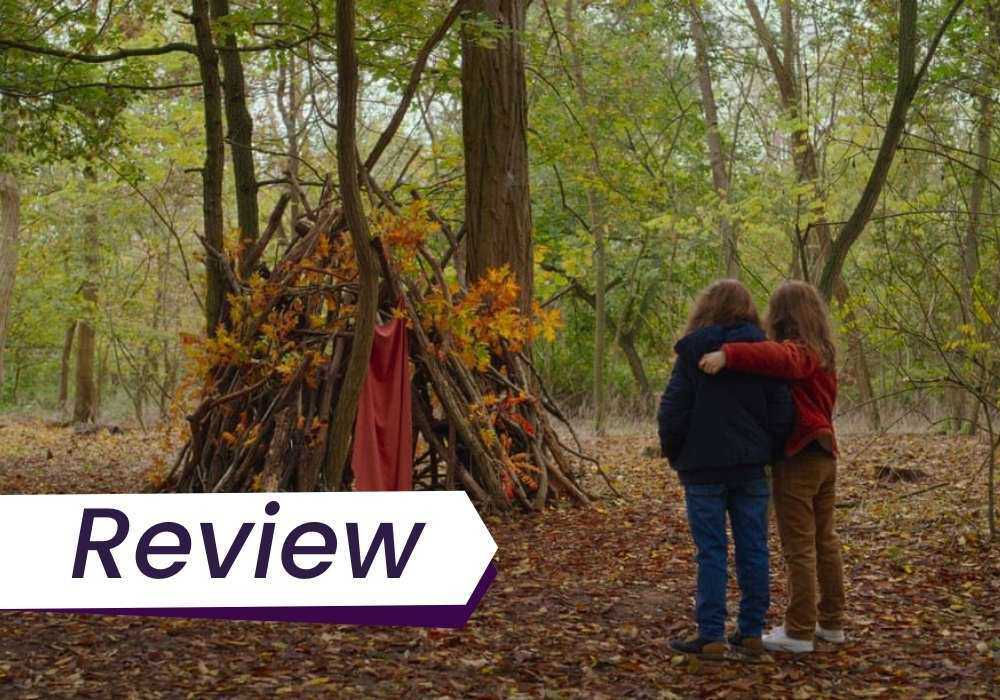In Kwon Min-pyo and Seo Hansol’s Short Vacation, four thirteen-year-old girls set out to complete their summer photography assignment: photograph the end of the world.
Check out all our Berlinale coverage.
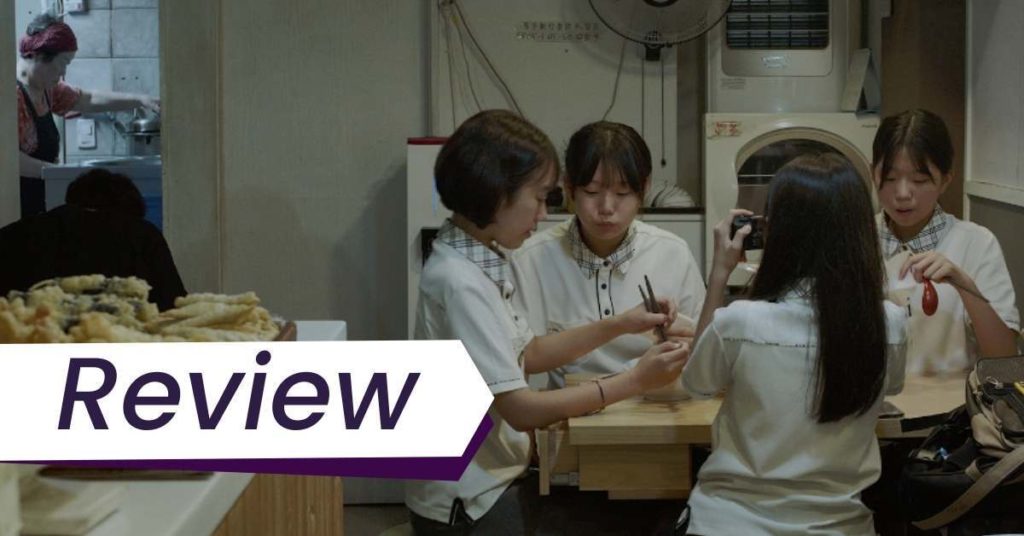
Discover one film you didn’t know you needed:
Not in the zeitgeist. Not pushed by streamers.
But still easy to find — and worth sitting with.
And a guide to help you do just that.
In Kwon Min-pyo and Seo Hansol’s Short Vacation, four thirteen-year-old girls are asked to photograph “the end of the world.” Or at least, that’s the prompt their photography club teacher gives them for summer homework. Set mostly over one hot summer day, the intimidating vastness of life is contrasted against the mundane trivialities of these girls’ lives and their friendships. What is “the end of the world” to teenage girls whose primary concerns are hanging out with their friends and making sure they get home before curfew?
Short Vacation gets the little things right about teen girl friendships, perhaps because the two male directors collaborated so closely with their young female stars, and gave them significant creative control. Although the story is fictional, each actress plays a character named after themselves, and their dialogue is largely improvised. As the press notes describe, “In order to show these girls in a vivid way, we tried ‘taking’ the scene, not ‘making’. The script only had guidelines for description of locations and situations instead of dialogues, which were intended for directors and staff. After being verbally communicated with [by] the directors, the actors acted spontaneously.” As a result, the four main characters — Siyeon (Seol Si-yeon), Yeonwoo (Bae Yeon-woo), Sojung (Park So-jung), and Songhee (Han Song-hee) — and their friendships with each other feels intimately real.
We’re invited into the friendship between the girls in the photography club through the eyes of Siyeon, the new girl in class. Siyeon quickly befriends the girls when one of them drops a contact lens on the floor, and Siyeon helps the group hunt for it by shining her phone light on the ground. With that simple gesture, she’s one of them; just a few scenes later, she’s hanging out and laughing with the girls as if they’ve been friends their whole lives. Kwon and Seo capture how friendships between young people are often this fluid, especially as the girls aren’t quite old enough yet to be stuck in their ways or suspicious of newcomers. While Siyeon is a stranger at the beginning of the film, the other girls will be baring their souls to her by the end, and she to them.
Kwon and Seo mostly keep their camera stationary and at a distance, so the focus is on how the girls interact as a group, rather than picking any one of them out as a protagonist. Siyeon, to a certain extent, acts as our point-of-view character, but Short Vacation is very much an ensemble film. Kwon and Seo shoot most scenes with minimal coverage, allowing us to observe, mostly in wide shots, how the girls interact, whether that’s slumping over each other as they sleep on a train, or walking down the road in a close group.
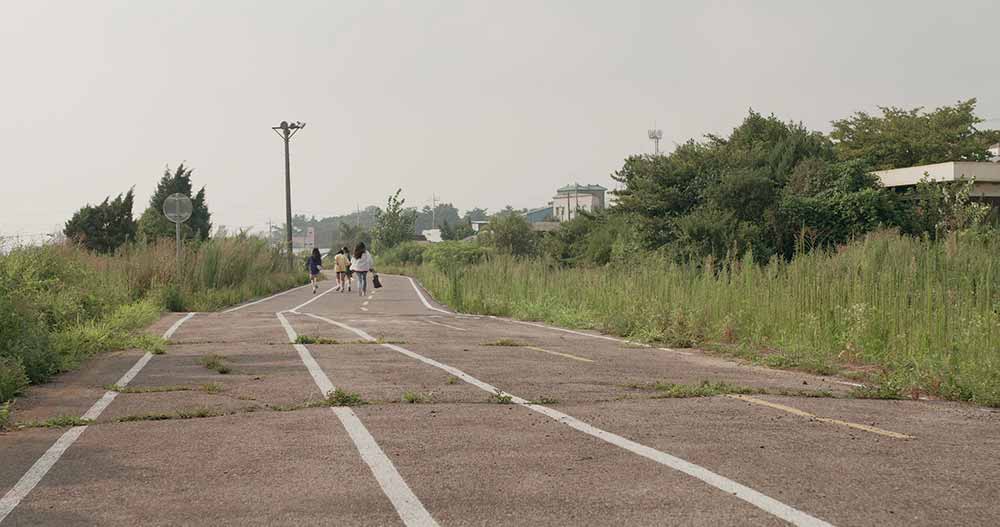
Through careful blocking, Kwon and Seo establish the girls as a tight-knit unit while also observing the dynamics between the individual girls within that group. In one early scene in a gym, Siyeon and Songhee chat in the foreground of the frame, while Yeonwoo and Sojung are visible in the background through a glass wall, playing with punching bags. Even while we’re focusing on Siyeon and Songhee’s conversation, the other two girls are always visible. Their energetic play-fighting contrasts with Siyeon and Songhee’s friendly but cautious conversation as they navigate a burgeoning friendship. As the film progresses, the girls naturally find their pairings, and by the end, we get extended scenes between Siyeon and Yeonwoo together in a room, and Songhee and Sojung together in a separate room, before they all come back together in the same room (and frame) for the final scene.
The girls’ journey to “the end of the world” takes the form of a day trip to Sincheon Station, the final stop on a train line out of Seoul. For these young teenagers with little life experience, venturing out of the city and into the countryside is as close to the end of the world as they can imagine — or have time to travel to and from without worrying their parents. None of them are overly enthusiastic about the trip; they just want to get a photo that looks apocalyptic enough to satisfy their teacher, and then head home before it gets dark.
It’s here that Short Vacation begins to meander, along with its protagonists, and struggles to stretch out its premise to fill even its brief seventy-nine-minute runtime. The girls’ journey is more winding than they expect, taking them from place to place via train, bus, and foot, until they arrive at Sincheon Station, hoping it’ll look more like the end of something. Of course, they get lost along the way. Kwon and Seo search in vain to find enough material to make this stretch of the film engaging. It feels like they’re filling time to get to their desired finale, which necessitates that the girls stray far enough that there’s no hope of them getting back home until the next morning. Still, the group’s long walk through a vast, green, and mountainous landscape under the hot sun is beautifully shot and full of lovely little moments between the girls.
Every now and then, the film shows on screen the pictures the girls take along the way — using old film cameras that their teacher gave them — allowing us to linger in moments that they take for granted. To counter this, the film stops in its tracks every time they click the shutters of their cameras. Kwon and Seo eliminate all sound, and display the photo that the girl just took on screen for a few seconds. The girls spend most of the day debating where they should head next and worrying whether they’ll get home on time, but with each photograph, Kwon and Seo allow us a moment of pause, to reflect on how this day will become a memory that these girls treasure, in a way that they don’t realise yet. Perhaps they’ll keep these photos throughout their teenage years, and look back at them as adults, trying their best to recall the scenes in between each snapshot.
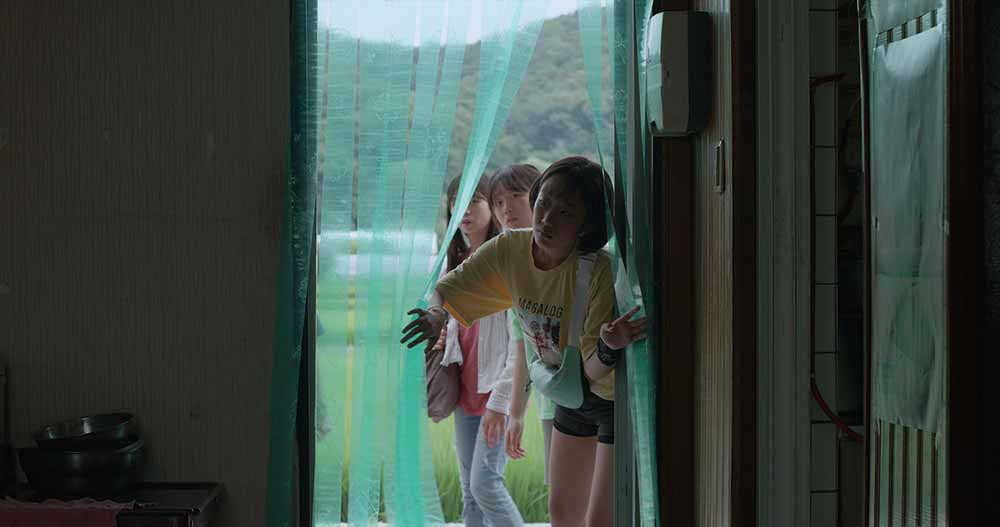
This one day of summer vacation is a sort of liminal space for these thirteen-year-olds, who are in the process of moving from childhood to teenagehood. They’re old enough to go out exploring on their own and young enough to still be naive — but that naivete is starting to fade. They’re at an age when they’re realising, for the first time, that time slips by without you noticing.
This crystallizes in the moving final sequence, when the girls get caught in a rainstorm and have to sleep in an empty building overnight because they can’t get back to the train station. In the dead of night, curled up on uncomfortable floor mats, they talk about grandparents: their regrets at not appreciating their own grandparents while they were still here, and their fear of aging and one day becoming grandparents. In the middle of a time of great change — these girls are just hitting puberty — they take a moment to reflect on the last thirteen years, and to look ahead at the years to come. It may not be the end of the world, but it’s the end of a time in their lives that they’ll never get back.
You could be missing out on opportunities to watch great films like Short Vacation at virtual cinemas, VOD, and festivals.
Subscribe to the Seventh Row newsletter to stay in the know.
Subscribers to our newsletter get an email every Friday which details great new streaming options in Canada, the US, and the UK.
Click here to subscribe to the Seventh Row newsletter.
